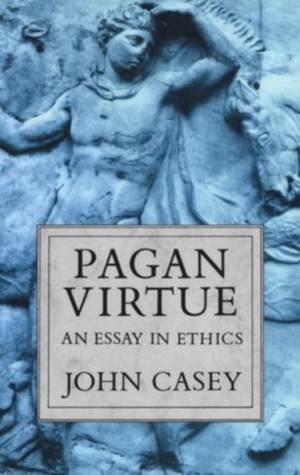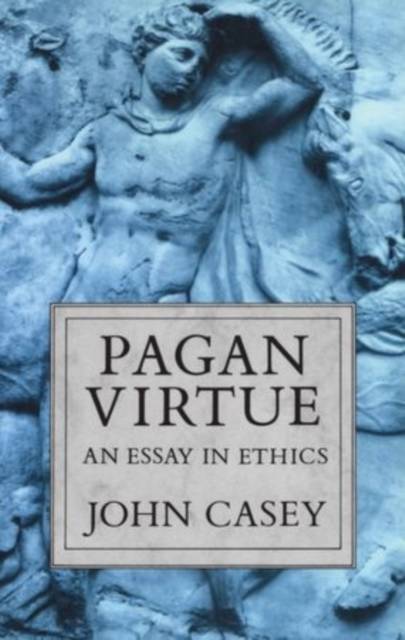
- Afhalen na 1 uur in een winkel met voorraad
- Gratis thuislevering in België vanaf € 30
- Ruim aanbod met 7 miljoen producten
- Afhalen na 1 uur in een winkel met voorraad
- Gratis thuislevering in België vanaf € 30
- Ruim aanbod met 7 miljoen producten
Zoeken
€ 75,95
+ 151 punten
Uitvoering
Omschrijving
The study of the virtues has largely dropped out of modern philosophy, yet it was the predominant tradition in ethics from the ancient Greeks until Kant. Traditionally the study of the virtues included the study of what constituted a successful and happy life. Drawing on such diverse sources as Aristotle, Augustine, Aquinas, Shakespeare, Hume, Jane Austen, Hegel, Nietzsche, and Sartre, Casey here argues that the classical virtues of courage, temperance, practical wisdom, and justice centrally define the good for humans, and that they are insufficiently acknowledged in modern moral philosophy. He suggests that values of success, worldliness, and pride are active parts of our moral thinking, and that the conflict between these and our equally important Christian inheritance leads to tensions and contradictions in our understanding of the moral life.
Specificaties
Betrokkenen
- Auteur(s):
- Uitgeverij:
Inhoud
- Aantal bladzijden:
- 256
- Taal:
- Engels
- Reeks:
Eigenschappen
- Productcode (EAN):
- 9780198240037
- Verschijningsdatum:
- 19/12/1991
- Uitvoering:
- Paperback
- Formaat:
- Trade paperback (VS)
- Afmetingen:
- 216 mm x 140 mm
- Gewicht:
- 317 g

Alleen bij Standaard Boekhandel
+ 151 punten op je klantenkaart van Standaard Boekhandel
Beoordelingen
We publiceren alleen reviews die voldoen aan de voorwaarden voor reviews. Bekijk onze voorwaarden voor reviews.











